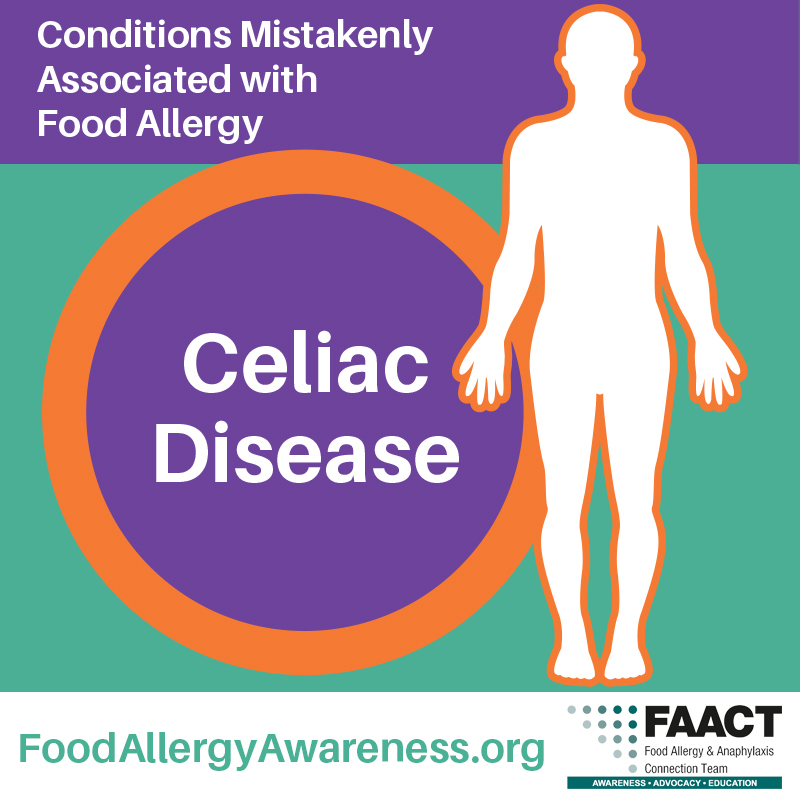Celiac Disease
Subcategories

Celiac Disease
Celiac Disease is an autoimmune gastrointestinal disorder. It does not involve IgE, which means that this is not considered a food allergy. In celiac disease, susceptible individuals develop IgA and IgG antibodies against gluten, causing primarily gastrointestinal tissue destruction resulting in severe gastrointestinal pain, diarrhea, and poor growth/development. Skin and other symptoms may also be present. Affected individuals often have certain markers, called HLA, that make them more susceptible to celiac disease.
Celiac disease is treated by removal of gluten from the diet. In many ways, celiac disease is similar to food allergy – the symptoms can overlap, removal of the food trigger is the treatment, and it involves antibodies. However the process is distinct from allergies, and this is not a condition that allergists manage.
More information regarding celiac disease, visit the Celiac Disease Foundation

